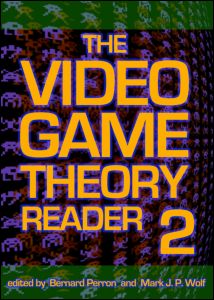Happy kids:
My spider sense says that some of these are faked, but which ones?
My name is Jesper Juul, and I am a Ludologist [researcher of the design, meaning, culture, and politics of games]. This is my blog on game research and other important things.
Happy kids:
My spider sense says that some of these are faked, but which ones?
It is that time of the year, so I will probably be quite quiet the next two weeks.
It’s been a good year for gaming. Some things that stood out for me:
Happy Holidays to everyone! Happy Gaming!

The Video Game Theory Reader 2 is here, edited by Bernard Perron and Mark Wolf.
My own piece is Fear of Failing? The Many Meanings of Difficulty in Video Games. You can read my piece here, but get the book (Amazon US, Amazon UK), of course – lots of interesting articles.
You may be aware of Penn & Teller’s unreleased Desert Bus game, wherein you have to drive a bus the complete 8-hour realtime trip between Tucson and Las Vegas.
Since the bus veers to the right, and since there is no pause or save function, this may be the most boring game in the world.
And yet … isn’t there something fascinating about it? Some kind of pure gameness?
Desert Bus for Hope is a charity event in which participants play Desert Bus non-stop, while onlookers can give donations to keep the bus going. At the time of writing, the game has been played for 4 days and 15 hours, with $56.000 collected – the money goes to the Child’s Play charity.
Had I been American, I would have described this as “awesome”.
From the contemporary British spoof 1980’s educational TV program Look Around You, here’s an introduction to computer games:
I find its distortions eerily accurate – the crazy assumptions about what would be the future of games and technology; the “graphics are very realistic”; the seriousness of the interviewer; the synthesizer music; the zany games (UK games were very zany at the time).
(Via Kevin Driscoll.)
I didn’t know Cooking Mama was sufficiently popular to merit a critical parody, but PETA (People for the Ethical Treatment of Animals) has made a game that emphasizes the more gory aspects of eating animals.
I do think it would be much more powerful if it started by giving players a more personal relation to the animals that they prepare and then made players kill them. (Meet the sweet little turkey … now kill it.)
I speculate that PETA faced the problem that they wanted to convince players that animals are treated cruelly – but on the other hand they did not want to make a game in which players could do just that. A shame really.
I am speaking at University at Buffalo on Monday the 10th at 6:30.
Location: 112 Center for the Arts, North Campus
It is pretty special to be in the US these days. Cars honking and people making noise on the streets of Cambridge Tuesday night. A genuine sense of hope, even if it is clear that the honeymoon will be over some day.
Special.